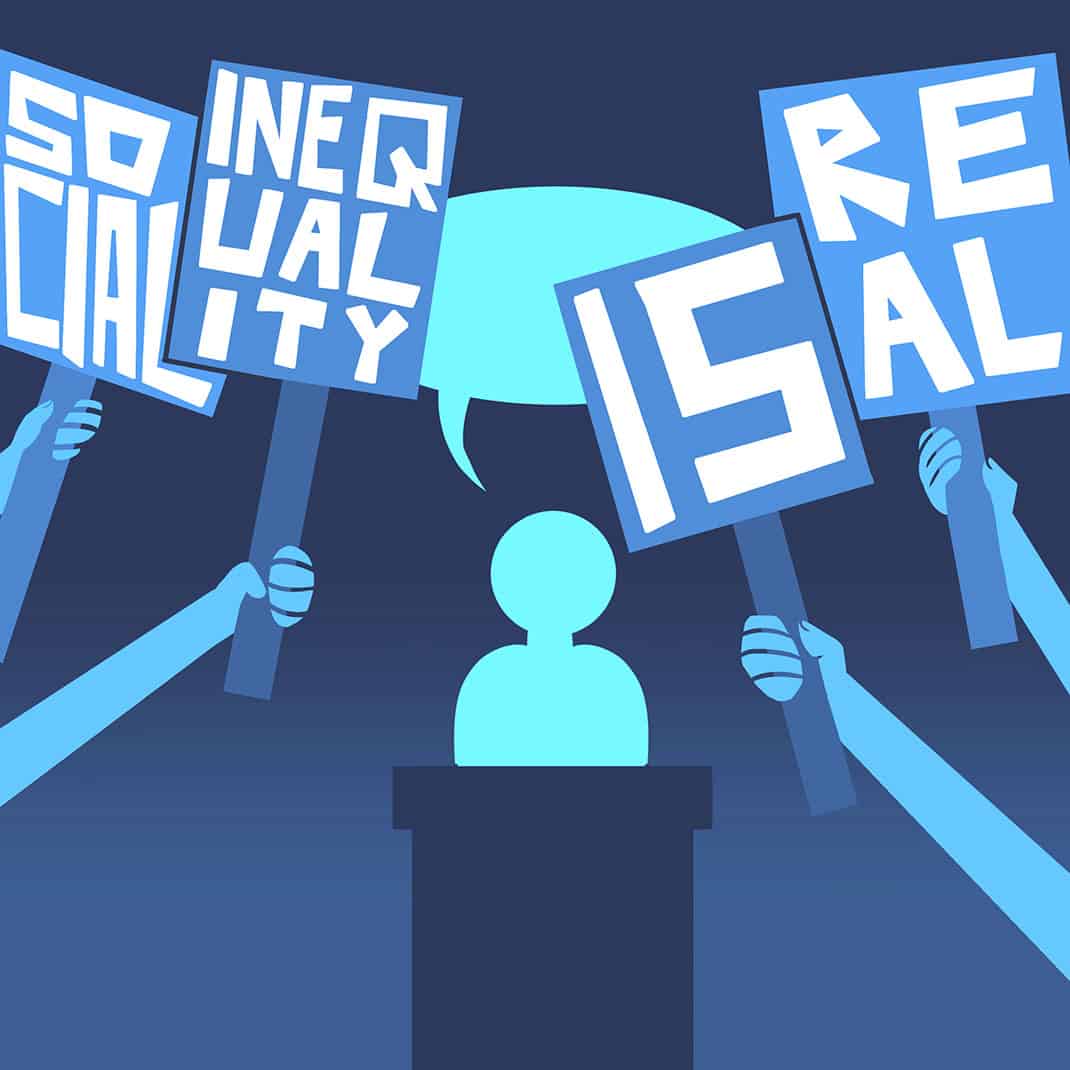The Keith Davey Forum on social inequality co-organized by Victoria University, the Department of Political Science, and the Association of Political Science Students two weeks ago was promoted as an opportunity to learn more about social injustice from visionaries in academia. Yet, by posing the question of whether social inequality was a “real problem,” the framing of this event seemed to negate the plight of marginalized people.
When the organizers announced the title of the forum and began to promote it, numerous student groups, including the Arts and Science Students’ Union, the Black Students’ Association, the Caribbean Studies Students Union, and the Victoria University Students’ Administrative Council Equity Commission, expressed concern. Individuals from these groups then came together to protest the event, holding signs reading, “Social inequality is real and is a problem and is everywhere.”
According to a joint statement released the next day, the underlying rationale behind the protest was not to “[condemn] any individual’s desire to solve the problem that is social inequality, nor was it meant to delegitimize any individual’s experiences.” Rather, the protest was meant to stress that the groups most affected by social inequality should not be left out of discussions surrounding the issue.
Despite the criticism it received, the protest held at this event was more than justified. The goal was merely to draw attention to the problematic wording of the topic and the continued existence of social inequality around us. As a result, it accurately reflected the mood of many socially conscious students in attendance at the forum, some of whom walked out with the protesters after they had finished making their statement.
Victoria University and the Department of Political Science are bound by the university’s policies, statements, and agreements, which are committed to anti-discrimination and equity. Because of this, I had originally hoped that these core values would be demonstrated throughout the discourse — especially since the students in at least two courses, POL101 and Vic One streams, were in some way incentivized to attend. Unfortunately, the forum was unconducive to a productive discussion on social inequality.
I was shocked that, in a world where overt displays of inequality are not socially acceptable, a panel of well-educated white males and one white female could be charged with leading a discussion that at least partially involved asking whether social inequality was a real problem. The representation of racial and religious minorities and LGBTQ+ people on the panel would have created an environment that demonstrated a more expansive worldview and challenged the audience’s beliefs and assumptions on the topic.
As part of the forum’s opening remarks, Antoinette Handley, the Chair of the Department of Political Science, recognized that the topic of discussion had been framed in a problematic way. This problem should have been addressed throughout the planning stages of the event, not just once the forum was already underway.
Handley made flippant comments trying to imply that the forum was on “social inequality on the one hand, and economic inequality on the other.” This proves that the panel and its organizers were not there to talk about the systemic and root causes of social inequality, choosing to ignore the impact of history on the present state.
In response to the protest, two arguments have emerged. Firstly, some have said that the protesters would have gained more had they stayed and participated in the discussion. However, for some students, there was no compelling reason to remain in an environment that could only be described as toxic — particularly if students felt they were part of a marginalized group whose concerns were being ignored. In choosing to leave, the protesters made a statement that they would not participate in a forum not receptive to their concerns.
Those who say that the protesters would have gained more had they opted to stay should also realize that it would have only legitimized the event, providing the organizers with a larger audience.
Secondly, some have argued that the protesters interfered with the organizers’ right not to be interrupted; they should realize that the protesters were merely exercising their own rights to freedom of assembly. Free speech and civil discourse is a two-way street. Even if people take issue with the interruption, the protest lasted approximately five minutes — the event evidently continued as planned after the demonstration ended.
The outcome of this event could have been circumvented had the organizers chosen to change the title, but this would have done nothing but deflect attention from the panel’s underlying issues with diversity. If the title had been changed, we would have ignored the issue because it would not have been brought up. Therefore, the organizers should have revamped the panel to include a more diverse selection of people.
Events like the Keith Davey Forum matter: they are intended to help individuals understand the real issues facing disenfranchised groups at the university and in the community in general. As a result, the university may consider this a learning opportunity and a chance for reflection on how their actions have unwillingly supported the systematic oppression of the voices of the disenfranchised, in academia and otherwise.
David Allens is a first-year student at Victoria College studying Political Science and Caribbean Studies.


